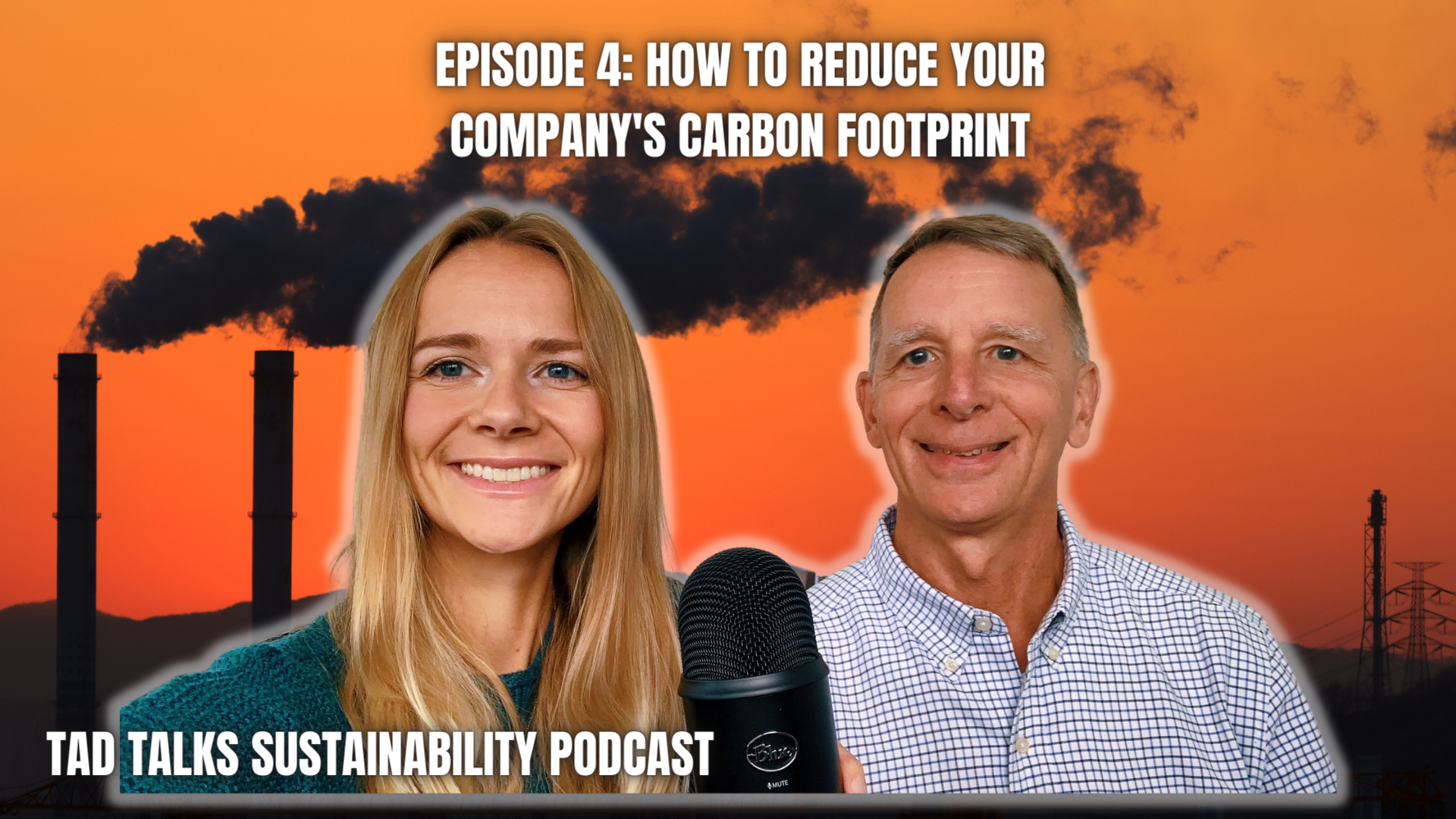Episode 4: How to Reduce Your Company’s Carbon Footprint
Click the links below to listen to the full episode
Reducing your company’s carbon footprint is essential for your long-term business strategy. In this episode, Tad explains what operational carbon is, how companies can reduce their operational carbon, and the benefits of operational carbon reduction.
What is operational carbon?
Operational carbon is the amount of carbon that is emitted during a building’s “use phase.” A building enters the use phase after it is fully constructed and starts to be used for it's intended purpose. The extraction of fossil fuels, traditional means of producing electricity, and our reliance on the combustion of fossil fuels to manufacture products creates significant carbon emissions and environmental impacts. Electricity is still pre-dominantly generated by burning coal or natural gas which releases greenhouses gases (GHG), creates solid waste, and releases other pollutants into the land and water. In 2018, electricity production is ranked as the third highest industry for releasing toxic chemicals into the air based on the EPA's toxic release inventory. Operational carbon has detrimental impacts on both our environment and human health.
How can companies reduce their operational carbon?
Many companies have set bold carbon reduction or carbon neutral goals. Below is the hierarchy of operational carbon reduction techniques:
Benchmark and baseline to understand energy consumption and carbon footprint
Conduct Sustainable Operations Assessment of company facilities
Implement operational and behavior changes
Implement building and equipment energy conservation measures
Purchase green power (wind, solar, hydro)
Consider installing on-site renewable energy
Purchase off-site renewable energy credits
Buy Carbon Offsets
what are the benefits of reducing your operational carbon?
There are so many benefits of reducing your operational carbon. Below are a few of the most important benefits:
Cost savings
Decreases environmental impacts and future liability for carbon tax
Supports the goals of environmental justice
Reduces air pollutants
Indirectly reduces power plant emissions and smog that are linked to asthma and other respiratory illnesses
Indirectly reduces the impacts of extracting fossil fuels from the earth
Demonstrates a company's commitment to sustainability
Increases employee attraction and retention
Meets investor and banking requirements
Reducing operational carbon may seem like a daunting task, but if we all work together we can make a significant impact. To learn more about this topic, check out this free downloadable PDF we put together: Operational Carbon Download.





